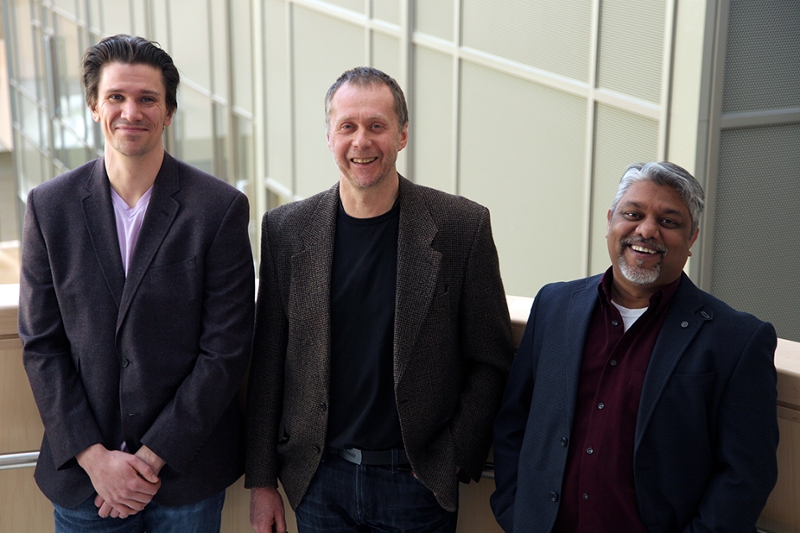
Researchers target the most aggressive of breast cancers
More than 25,000 women in Canada are diagnosed every year with breast cancer, with no specific therapy available to target the most aggressive sub-type called triple-negative breast cancer (TNBC).
By University Communications“Unfortunately, a lot of patients with triple negative breast cancer die relatively fast,” said University of Saskatchewan cancer researcher Andrew Freywald, who has been awarded $558,452 by the Canadian Institutes for Health Research to find methods to target TNBC directly and improve patient survival.
Freywald, who has established an experimental system that uses mouse models to ascertain the initiation and growth of cancerous tumours, is collaborating on the research with Franco Vizeacoumar, clinical assistant professor in the U of S College of Medicine and research scientist at the Saskatchewan Cancer Agency, and Eric Price, assistant professor in chemistry and Canada Research Chair in Radiochemistry.
The aim is to develop new, personalized therapies to target and eliminate triple negative breast cancer. About 10 trainees including post-doctoral fellows, graduate students and summer students will be involved in their four-year project.
The researchers have initially focused on a cell-surface receptor (CSR) molecule, which promotes aggressive tumour development. It has been found to be overexpressed (produced in large quantities) in many cancer tumours including TNBC.
Read the full story on the University of Saskatchewan website.
